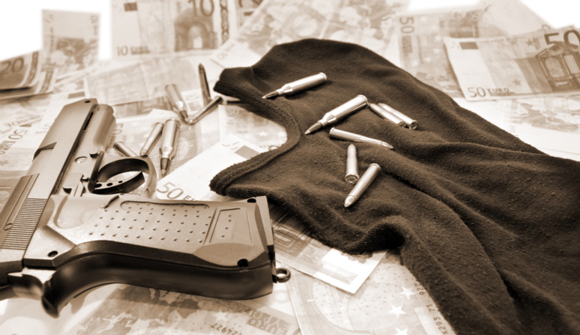
Rouhani Blames the West for Rise of Islamic State, Demands Apology … Iranian president Hassan Rouhani, whom the Obama administration has considered enlisting in the fight against the Islamic State, blamed the growing threat of the jihadist group on the West's involvement in the Middle East. – National Review
Dominant Social Theme: Those crazy Iranians are at it again. Who believes them anyway?
Free-Market Analysis: In our efforts to cover elite memes and their successes and failures, we occasionally notice significant signposts – reports that indicate the strengthening or weakening of a given thematic element.
Chief among the instruments in the global toolkit are war and various kinds of economic disintegration. War gives government officials access to tremendous powers they would not otherwise be able to justify. Economic ruin also empowers officials while impoverishing citizens and making it more difficult for the middle class to monitor democratic erosions because they are too busy struggling to pay the bills.
But what we call the Internet Reformation has made such manipulations more apparent – easier to spot. And that brings us to the above article excerpt reporting on Iranian president Hassan Rouhani's speech to the United Nations. There, he virtually accused the West of creating various factions of "Islamic" terror.
Here's more from the National Review:
During his speech at the United Nations General Assembly … Rouhani said, "Today's anti-Westernism is the offspring of yesterday's colonialism; today's anti-Westernism is a reaction to yesterday's racism," according to a live translation. "Certain intelligence agencies have put blades in the hands of madmen who now spare no one."
"All those who have played a role in founding and supporting these terrorist groups must acknowledge their errors, which have led to extremism," he continued. "They need to apologize not only to the past generations, but also to the next generation."
He also chastised Western media for identifying the Islamic State as being motivated by Islam.
"I am astonished that these murderous groups call themselves 'Islamic,' " he said. "What is more astonishing is that the Western media in line with them repeats this false claim, which provokes the hatred of all Muslims."
President Obama and other Western leaders, however, have gone to lengths to argue that the Islamic State is not properly Islamic.
Obama may have gone to "great lengths" to dissuade people from thinking the Islamic State is representative of Islam – but still that is the name that the mainstream media has settled on, and it's one in use by government officials, too.
But the big news in the Rouhani speech was his statement – not significantly reported by Western media – that Western intel agencies have put "blades in the hands of madmen."
In the 20th century, such manipulations were often hard to spot, but in the 21st century, the Internet reveals the inescapable reality of such patterns. In the 20th century, Rouhani might not have made such a statement but in the 21st century it is merely a recognition of a more general knowledge, certainly in the Middle East.
In fact, in the past few weeks there have been breathless Western reports that many in the general populace suspect that the CIA is funding IS – ISIS – whatever it is called, along with Al Qaeda. Beyond this there is a widespread suspicion that the Ebola outbreak is the work of Western hands as well.
This is a significant and emergent belief structure that the West has not had to deal with before – or not in such a public context. It is certainly justified in the sense that Western meddling in the Middle East and Africa is a long-term phenomenon, adequately documented in both the mainstream media and the academic press.
This "awakening" is complicated by the clumsiness of the current military narrative in the Middle East, Ukraine and Africa. For instance, ISIS is said to have been funded by Middle East radical factions, but most of these factions seem located in such places as Saudi Arabia, Qatar and Kuwait. These are the same states that are purportedly some of the US's closest allies, either overtly or covertly.
Additionally, the US has now approached Syria and Russia about supporting the US effort to eradicate ISIS. The US wants to encourage the growth of "moderate" militant Islam once ISIS has been tamed and eliminated. The trouble is that such factions are weak and pose little threat to the current Syrian government.
The creation and deployment of nuclear devices has made fomenting large-scale "world wars" difficult in the 21st century. But as war remains a powerful transformative tool, both politically and economically, those who seek to use such mechanisms to reshape regions and to create malleable dialectics have concentrated on regional wars.
But if we look at the muddle in Africa and the Middle East it soon becomes clear that such regional warfare is difficult to control and sustain with any kind of narrative clarity.
We have spent the past several years searching for a sensible and dominant social theme appropriately implemented; increasingly, we wonder if there is one.

Perhaps serial warfare is not nearly so effective a tool as more widespread militarization of the kind that occurred in the 20th century.
